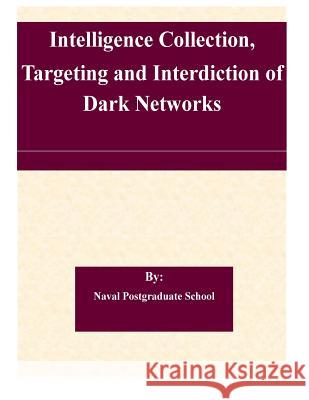Intelligence Collection, Targeting and Interdiction of Dark Networks » książka
Intelligence Collection, Targeting and Interdiction of Dark Networks
ISBN-13: 9781508718574 / Angielski / Miękka / 2015 / 76 str.
To interdict dark networks and prevent terrorist attacks, security forces require consistent access to relevant intelligence and targeting data. Dark networks often react to a security force's targeting pressure by obscuring their activities and becoming increasingly covert. Network adaptation to targeting pressure can frequently lead to intelligence gaps and lulls in targeting that may be both predictable and preventable if identified early. This study will examine the efficacy of the two prevailing modes of targeting and their impact on resilient dark networks. To achieve this goal, this thesis will conduct a multivariate path analysis using temporal, geospatial, and relational data of a select dark network as these two modes of intelligence collection and targeting are employed against the network over time. By achieving this goal, this thesis will generate policy recommendations for operationalizing the outcomes of this study in order to better formulate how the prevailing modes of targeting can more effectively be implemented to address adaptive terrorist threats.
Zawartość książki może nie spełniać oczekiwań – reklamacje nie obejmują treści, która mogła nie być redakcyjnie ani merytorycznie opracowana.











